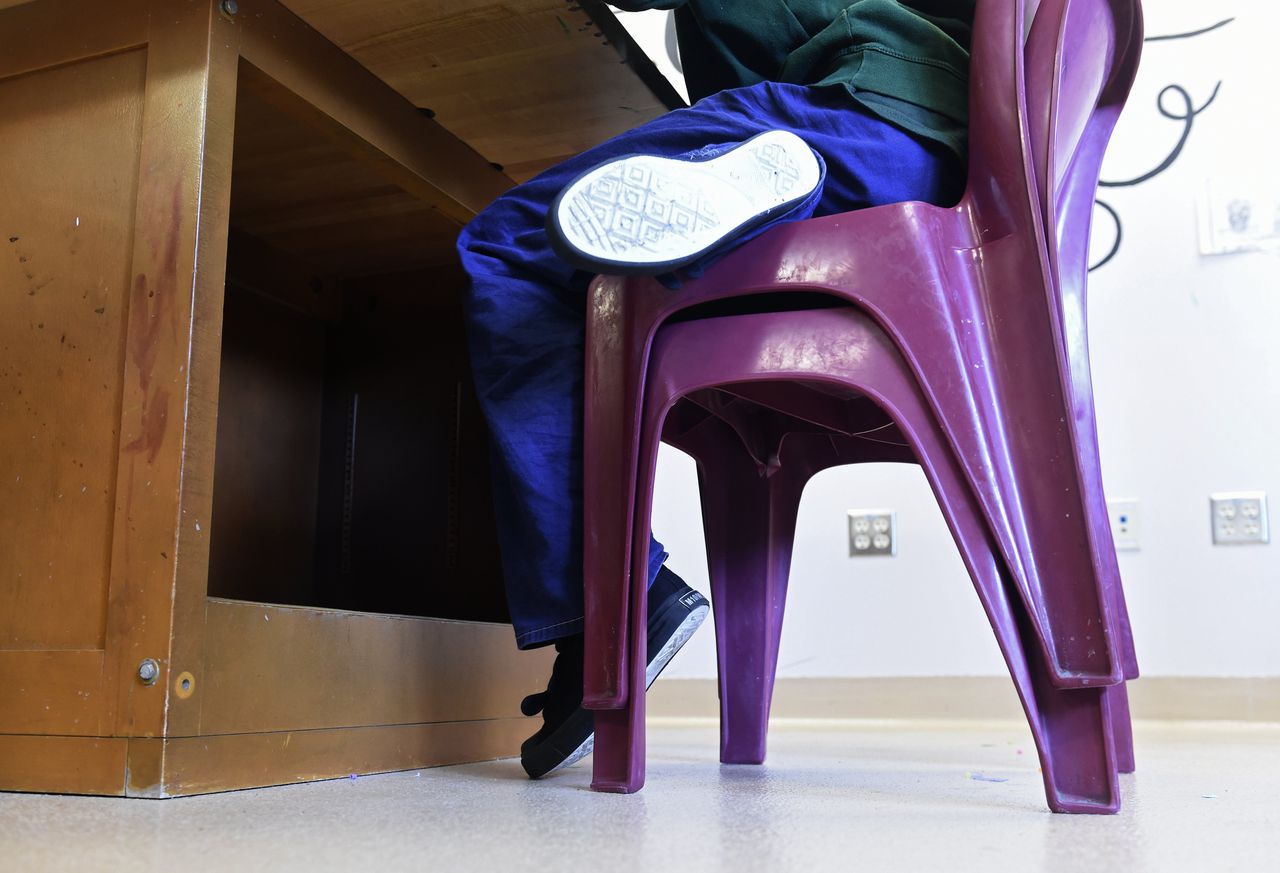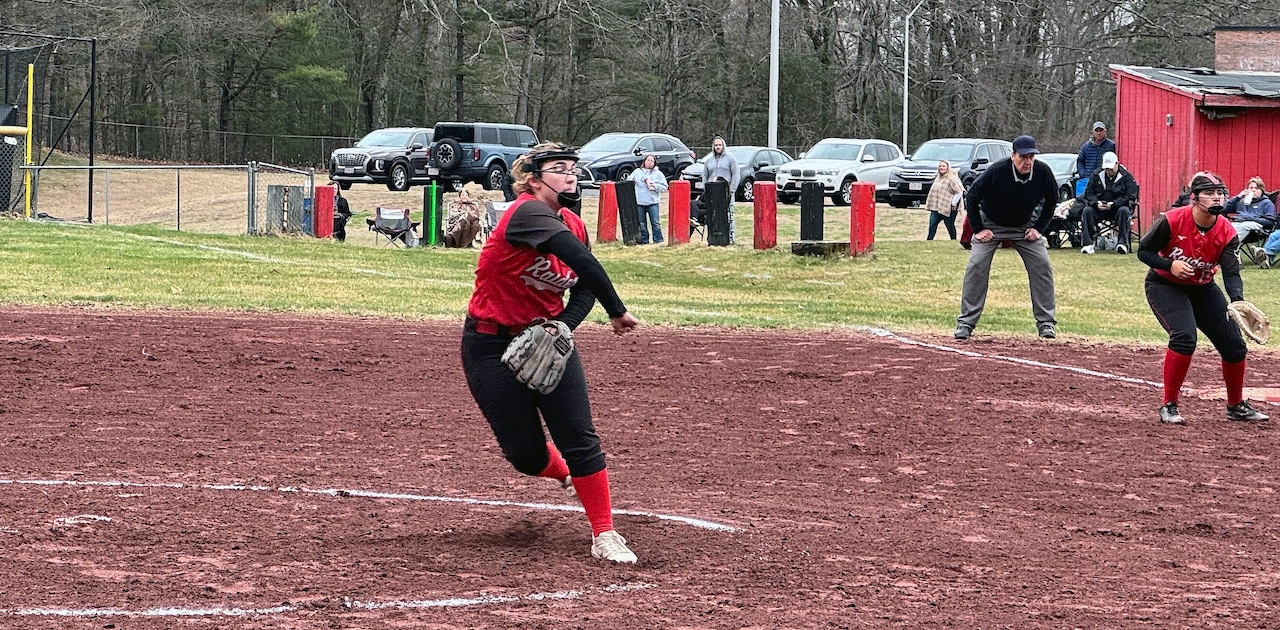
Her 13-year-old daughter was already involved in the juvenile court system, was skipping school and the single-mother from Peabody feared her daughter could end up in prison. But she didn’t know where to turn.
“I literally have gone to so many different places looking for help. And it was pretty much like, ‘Nope, can’t do anything.’ ‘Nope, can’t do anything,’” said Flores, who requested to not use her full name to protect the identify of her child, sounding defeated. “And I’m like, what do I do? Let my kid go to jail?”
Instead of waiting until the only options were to send the child to a juvenile detention center or group home, the juvenile court suggested Youth Villages step in.
Youth Villages has been offering services in Massachusetts since 2007. However, in 2021 it expanded to offer a program known as Intercept for Placement Prevention, which is a program uniting its services, the juvenile court system and the Department of Children and Families to help keep children from going into foster homes, group homes or, like Flores feared, eventually ending up in prison.
It started in Western Massachusetts but after two years, has expanded across the state in six courts and four DCF regions.
Since August, 61 youth have been served through the collaboration between the three organizations and the program boasts a more-than 80% success rate of keeping youth in the home with family or living independently.
Children involved in the program range between 10-18 years old, although younger children can be included. They might be having difficulty with truancy, aggressive behaviors, running away, breaking the law or substance use.
The program provides 24/7 support for the families. It also takes a comprehensive approach, working with the school, doctors and therapists.
“We are a family-focused service,” said Becky Arce, Youth Village’s regional clinical supervisor. “So we would create safety plans for the home, for the school setting, for the use of themselves to utilize and focus on those areas of need, and then work with parents on how they can address these behaviors and what tools they need to incorporate into their daily lives to support in the decrease of these behaviors.”
Only a few months ago, things were “extremely stressful” for Flores and her daughter, Damarys.
Damarys had been getting into trouble at school, breaking rules at home and shutting her mom out.
“I could tell her ‘you’re going to go to jail if you keep doing this,’ and it clearly wasn’t getting to her,” Flores said. But by having workers at Youth Villages say similar things, it “opened her eyes a little bit about the seriousness of if you keep doing this, you’re going to be headed down a very dark road.”
Their situation looks very different now.
Youth Villages staffed helped create rules and guidelines the teenager was able to follow. But it also created a support system for the single mother, who also had to balance work and her own emotions.
“Everybody wishes they had the perfect kid … and I’m the perfect parent, nothing bad ever happens,” she said. But that wasn’t reality — and they needed help.
Still, Flores was nervous. She said she already felt like a “crappy mom” and didn’t need others telling her that — or taking away her child.
But that’s not what Youth Villages is about.
“We’re human,” said Massachusetts Family Intervention Specialist Nathalia Nunez. “I’m having those conversations where it’s not so clinical. At times it’s just checking in on their mental health is a huge thing.”
And now, Flores knows that, too.
“I know that no matter what happens, I have someone to call and at least something will be done. Whether they talk to her, whether it’s them having to come to the home for a visit,” she said. “It’s just nice to know I have that kind of backup.”
In another family Arce’s team was working with, it took about a year of meeting weekly and creating safety plans to address truancy and aggression and understanding why those behaviors were happening in the first place.
“And at the end of service, the youth is very successful, no longer involved with the court, had a job, was on track to graduate high school and was able to remain in the home and build strong relationships with with his caregivers,” Arce said.
And it’s not just about the children learning to follow the rules. Parents, including Flores, have to be willing to learn. For Flores, it was to be more patient.
Things had gotten so bad, Flores had started going straight into panic mode “of like, here we go. The world’s gonna end.”
Now, she stays calm and asks her daughter, “What happened?” It sounds basic, but it wasn’t something Flores grew up with in her own house. Flores wants to break that cycle.
“Now I have to think in a whole different way. How do I approach her and meet her on her level so I can understand her and try not to judge her? Because I feel like maybe I did judge her a lot when everything started happening, as opposed to trying to be more understanding,” she said.
She wishes Youth Villages would’ve been her first phone call when she was feeling so alone. She hopes others can benefit from it, too.
“There is a service that can help and … they won’t take your kid away. They’re gonna be there to help support the parents, so that the child can feel supported as well,” she said.
And Damarys has started getting all As and dreaming of what to do after high school — although she changes her mind often, her mom said.
“I just told her no matter what you want to do, I got your back,” Flores said. “We’ll work on it together.”






